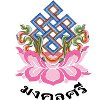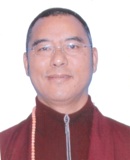| Dear Friends Near and Far,
I hope you have all been happy and healthy. I have been well and at the moment at the Nagi Gonpa Hermitage performing the Ngakso Drupchen (Ocean of Amrita), a vajrayana mending and purification puja.
From the hagiography, The Wishfulfilling Tree, Padmasambhava himself says, “People of the future who have not met me, read and see my story”. It is said that merely hearing the name Padmasambhava brings immense blessing.
On this last Guru Rinpoche day of the Water Dragon Year of 2139 and with an understanding of these words of Padmasambhava to be a prophecy, I bring to you all with much joy the news of the unfolding and unfurling of the story of The Lotus Born into a pictorial depiction of moving images.
Neten Chokling Rinpoche, one of the incarnations of the Great Treasure revealer; Terchen Chokgyur Lingpa is once again coming out with a true gem and this time none other than the story of the Lotus Born Guru. Rinpoche has previously made a film on the life of Milarepa and Brilliant Moon: Glimpses of Dilgo Khyentse Rinpoche.
Glimpses into scenes from the life story of Padmasambhava– the Enlightened Hero of our time.
Ext. Samye courtyard, Tibet
Under the shade of the peacock feather parasols, the priest Padmasambhava, the abbot Shantarakshita and the king Trisong Duetsen, circumambulate the temple. Suddenly a shower of arura fruit falls from the skies. The king’s attendant holding the peacock-feathered parasol exclaims, holding an arura fruit in his hand.
UMBRELLA ATTENDANT
Your Majesty, it is an arura!
This medicinal fruit is obtained
only in India.
The king looks extremely joyous.
Int. King’s chamber, Samye
PADMASAMBHAVA
Since the temple is now established
the Abbot and I ask your permission to
leave for India.
Trisong Duetsen is taken aback. The king clasps his hands at his chest and sorrowfully speaks to the two masters.
TRISONG DUETSEN
Compassionate Masters, please listen.
Tibet is a land of fiends where the
sound of the holy Dharma is not even
heard. Although your kindness has
already been great I humbly
supplicate that you postpone such an exit!
The King sheds tears. The two foreign masters feel compassion for the Tibetan King.
PADMASAMBHAVA
Your Majesty, the three of us have come
together in Tibet through the ripening of
karma from the aspirations of our three
lives. Since we, the three brothers, again
have this connection as we had in past
lives, I shall not turn back your request.
ABBOT
Very good, I will do likewise.
Upper cave at Chimpu Hermitage
A young girl of 16 sits on the floor of the hermitage facing Padmasambhava who is sitting on a cushioned platform.
PADMASAMBHAVA
Tsogyal, when practicing the Dharma,
you must first tame your own mind.
YESHE TSOGYAL
What does that mean?
PADMASAMBHAVA
You must extinguish the scorching flames
of anger, cross the river of desire, crumble
the mountain of pride, overcome the storm
of envy and light the torch of discriminating
knowledge in the darkness of ignorance.
Yeshe Tsogyal looks to Padmasambhava with full attention.
PADMASAMBHAVA (CONT’D)
These five poisons of anger, desire, pride,
envy and delusion will ruin your being in
samsara if you uninhibitedly indulge in them.
Do not let them run wild. There is a danger
in that.
Yeshe Tsogyal nods her head.
Int. Upper cave at Chimpu Hermitage
Yeshe Tsogyal is writing down something on a yellow parchment.
YESHE TSOGYAL
I, Tsogyal, have been serving the master
for a while now. On different occasions,
he gave advice on Dharma practice that I
persistently retained in my perfect recall,
collected, and wrote down for the sake of
future generations. This is committed to
writing in the Upper Cave at Chimpu on
the twenty fifth day of the second month
of fall in the Year of the Sow.
She rolls the small parchment and puts it in a small leather box. She exits her cave hermitage with it.
Standing in front of a big odd shaped boulder, Yeshe Tsogyal presses the small leather box onto the rock surface. After a gentle push the small box gently sinks into the hard surface of the boulder and disappears from sight.
PADMASAMBHAVA (O.S.)
Since they are not meant to be spread at the
present time conceal them as a precious treasure.
Outside Samye Gate
An old woman waits by the road near the gate of Samye. Padmasambhava passes through the gate. On seeing him, she bows down and joins her palms before him.
OLD WOMAN
Great Master, you are about to leave for your
hermitage and I am about to die. Please give an
instruction that requires little hardship, that is
simple to grasp, easy to apply and very effective.
PADMASAMBHAVA
Old lady, who are you?
OLD WOMAN
I am the one who has been sending the bowl of curd.
Padmasambhava acknowledges her kindness with a smile.
PADMASAMBHAVA
Old lady, take the cross-legged position
and keep your body upright.
The old woman sits down as instructed.
PADMASAMBHAVA (CONT’D)
For a short while, simply remain with totally relaxed attention.
Gungthang Pass, Tibet
YESHE TSOGYAL
(Despondently)
The sun is setting in our hearts. Since you are leaving for Chamara we are left without a guide. From the king to the pauper we all rely on you. What will we do after you leave. What will happen to us? Who do we turn to for advice?
Padmasambhava looks to Yeshe Tsogyal.
PADMASAMBHAVA
For the moment you should not worry
because the Dharma is like the sun at noon
in Tibet. Therefore it makes no difference
whether I am here or not.
He looks down to the Tibetans. Some of the older ones cry.
PADMASAMBHAVA
To those who have faith in me, I have never
departed – I sleep on the threshold of their homes.
From those with erring views I am concealed,
though yet I stand before them.
Through this film, may the wisdom and compassion of Padmasambhava’s life act as a soothing balm to quell the miseries afflicted out of ignorance.
Sarva Mangalam,
Phakchok Rinpoche
|

